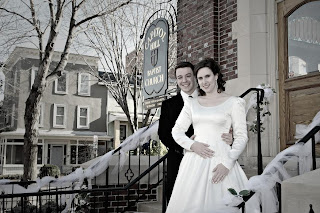Remembering: Fact or Fiction?
Background: Frey's book, A Million Little Pieces, was picked by Oprah for her book club. Now, Oprah has the Midas touch in the publishing world -- the minute she picks your book, you're just along for the oh-so-fast ride to the top of the bestsellers' list (which gives me some sympathy for Frey). And when it came out that Frey had modified certain elements of his memoir, Oprah stood by him . . . that is, until the "scandal" refused to go away. Oprah summoned Frey to her show to account for his wrongdoing and gave him a nationally televised spanking.
But my coworkers and I aren't sure whom to side with -- the journalistic-leaning Winfrey and the "truth of hard facts"? Or the right of an author to produce a creative art form based on life experiences? And though we don't necessarily have a vested interest in the particular case of James Frey, we're tending to lean toward the side of the-memoir-as-art-form.
In yesterday's Book World section of the Washington Post, Nancy Milford offers an article entitled "The False Memoir," which I encourage you to read if this topic interests you. I suppose the whole controversy is over how a memoir ought to be classed. Is it more like fiction? There's always been a small (and at other times, not so small) group of people who disapprove of or dislike fiction, or who feel that somehow it's less than authentic because it's "not real." Or is a memoir more like non-fiction? And within the realm of non-fiction, how much right does an author have to "recreate" his experiences? And can he recreate them and still present truth? While truth certainly contains the aspect of cold, hard facts, truth also has a "non-fact" element to it. Truth is not always tangible, and just because we alter some of the facts, have we destroyed truth? And is a memoir bound to be pure fact?
Almost from the beginnings of prose writing in English, but surely since the 18th century, there's been an uneasiness about the conflict between the true story, based on verifiable facts, carefully ordered, in which you could believe and therefore trust, and one that was made-up, invented, a pack of lies and therefore untrustworthy -- a fiction. . . . In autobiography and memoir, fiction and essays, writers have often altered their pasts to suit their own purposes. They don't simply cloak and encode the details of their lives -- they invent, falsify and fictionalize the "facts" of their lives in what is, I believe, a life-saving prose strategy.
~ Nancy Milford, "The False Memoir"


0 Comments:
Post a Comment
<< Home